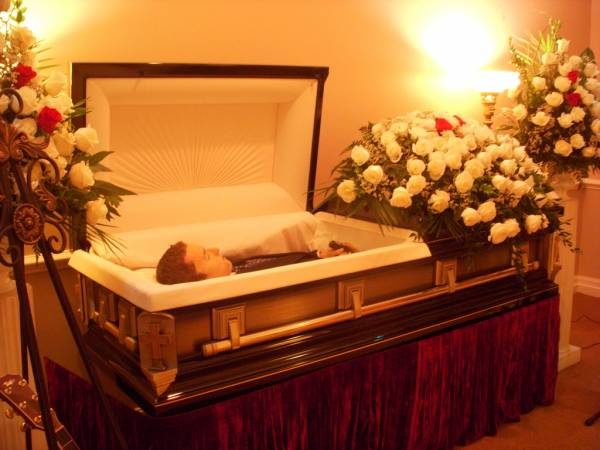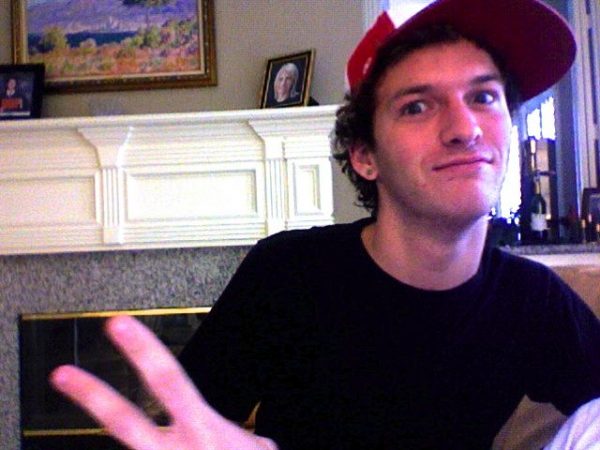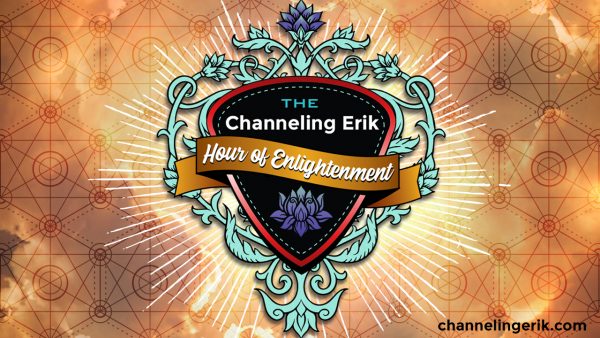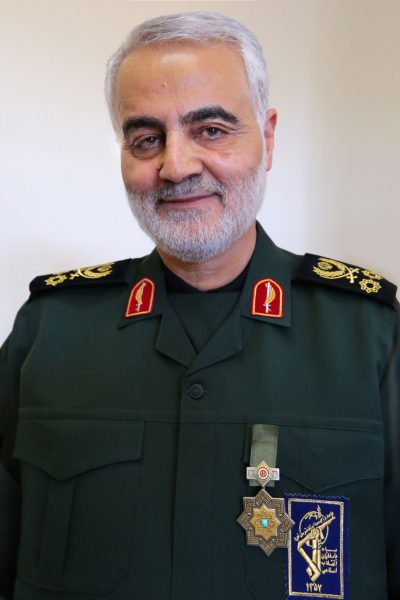I hate this, the worst day of the year. The day I lost my boy from the physical world. All morning I’ve been looking at the clock thinking, ‘He has 4 more hours of life,’ ‘I have 3 1/2 more hours with him.’ It’s just terrible, and year after year, it gets better but excruciatingly slowly. I love you so much, Erik. I miss your hugs, your kisses, sitting in your truck listening to Lil Wayne, having intimate conversations at Le Peep, telling you to be careful when you go out at night with friends, calling you downstairs for dinner, asking you to do your chores and so much more.
Don’t forget about Erik’s Hour of Enlightenment radio show TONIGHT at 5:00 PM PT/7:00 PM CT/8:00 PM ET. No more than 15 minutes before the top of the hour, call 619-639-4606 to ask Erik your question. There are three ways to listen: Listen on the phone line, click on the “Listen” icon on the right sidebar of the blog or click on this link: http://goo.gl/aFHTzJ
Here’s the last part of our interview with Omar Mateen. Please pardon the lack of editing. Not really feeling up to it.
Robert: Jillian is talking. She has a different point of view. She never talks, but I always know she’s there.
Me: That’s Erik’s girlfriend.
Robert: Yeah, and she’s also into family stuff like raising kids.
Me: Yes.
Robert: She’s approaching it from a mother’s perspective.
Jillian: I just don’t understand the value in giving someone access to a weapon that can fire 80 rounds in a few seconds and to kill 49 people.
Robert: She has strong opinions.
Erik: That’s what I love about her.
Jillian: I don’t understand why that would be allowed. I understand that there are so many of them that to try to take those away from people is going to make them feel like it’s the start of them losing the ability to have all of their weapons. That is something that, politically, the government and the people, collectively, will have to work on to make sure there is balance. This is why people have a distrust in government. It goes back to Brexit again. Individuals feel like a small minority has the power to take away their ability to choose for themselves. That’s what people fight so hard against. I understand that. As a mother, I was raising my children in a different time period. Many times I wasn’t allowed to choose when I could have a child. The choice was made for me, and that created a lot of resentment. There were many lifetimes where my resentment over not being able to choose whether I could have a child or not that I didn’t treat that child very well. I would project my anger on the child. That’s what people do in the United States when they talk about gun laws. They project that anger over feeling like someone is taking something away from them. It might not happen quickly, but it happen over a long period of time. It could end up being beneficial for society. You don’t know until things play out. The healthiest way for that to occur is for both sides to participate. There are those who feel like there should be more control, and there are those that feel like there should be less control. Everyone needs to come together and talk about it. Otherwise, there will always be this feeling of animosity.
Me: Well, what should we do to fight terrorism and prevent the ones like you committed, Omar? What’s the answer?
Omar: We have to stop approaching things from a suspicious place, from a fearful place, from a place that says, “You’re out to get me so I have to stop you before you do it,” from a place that marginalized different groups. Many times, politicians do that not because they’re prejudiced, but in some instances there may be resources that they want. Sometimes it’s not about the resources. It’s about power. Sometimes it’s about maintaining a certain order that one group could potentially upset. And that order that they could be upsetting might beneficial to everyone.
Me: Well, give me some more practical ways to fight terrorism. Let’s just say to protect the U.S.
It’s not like I don’t care about the other countries. I just wanted to simplify things for him.
Robert: A lot of spirits do this to me. They focus on more philosophical and emotional things.
Me: Yes, and that’s valuable, but I also want some practicality here.
Omar: The most practical thing they can do is to be diplomatic. Just stop all the wars.
Me: Okay, I’ll get right on that! And I’ll build a shopping mall out of toothpicks while I’m at it.
Robert laughs.
Me: So you’re not in a place where you can tell me.
Robert: He’s not big on this. He showed me visuals of people interacting and talking with each other and get used to each other.
Omar: That’s the only thing you can do to get this to taper down, but practically, with the way things are right now, you have to be offensive and defensive while at the same time being diplomatic.
Me: Okay, that’s good. We’re about to close here, so I’m just going to ask you a couple of more questions. First, is there something we don’t know now that would help us understand what happened? Can you give us any information that would help us evolve both individually and as a collective?
Omar: I answered that question earlier. It’s about recognizing that we’re all the same human beings. We’re all one group. No one group is better than another.
Me: And no specific information for the FBI? Not just philosophical but also information that would help the investigation?
Omar: They have all the information. They knew I had a lot of weapons and have found those. They’ve contacted the people where I got those weapons from/ All of the families have been notified; they’ve tracked all of my steps; they’ve looked at all my records on my computer, all my history in all the drives that I had.
Me: That’s fine.
Robert: He’s listing everything that they already know.
Me: Two more questions. Do you have any message for the families, friends and survivors? If so, what would that be?
Omar: The love that my victims projected toward me is a testament to the families they grew up in. They need to know how much love they had in their hearts. The most important thing they need to hear is my regret. The human side of me was what other humans would consider a monster.
Me: You were broken.
Omar: I was, but that’s not going to help the families feel better. I would ask for forgiveness, but I know that’s not possible.
Me: Aw. Okay.
Omar: I’m going to hold these regrets in place in my soul until all of those families have crossed over. Until then, I will not release it. For these people, I’m going to carry all of the pain until then. I feel like that’s the only way their human side will think that justice has been served. I will carry that pain that I brought onto you. I will not let it go.
Me: Okay, I have one last question. Is there another life that you had or will have—past or future—that influenced this last one?
Robert: It’s like a catalog. He’s flipping through them all.
Omar: There was a life in France.
Robert: He’s carrying a gun with a sword on it.
Me: A bayonet. Okay.
Omar: That was the life that influenced this one. It’s part of what made me have an interest in weapons. I funneled some of the animosity I had in that life into this last one. When I was faced with animosity, it would provoke me even more.
Me: Was there a particular war that he was a part of?
Omar: The French Revolution.
Me: Oh, okay. Did you get killed in that revolution?
Omar: Yes.
Me: How did you get killed?
Robert: He actually said he was killed several times and I said, “Well you were only a human once in that life.”
Omar: It was like several deaths because when I was on the battlefield, I was stabbed and left to die, but whenever a war or battle is over, people would look for those who were still alive and would try to kill them.
I gasp.
Omar: So they’d go looking for people who hadn’t died yet, but they didn’t do that this time. They actually picked me up and carried me back because I was a courier. I only had the gun for protection. I would relay where the other side was and go back and tell people.
Me: Oh, okay.
Omar: So they knew that’s what I was. I had a mark of some sort on me. They brought me back and questioned and tortured me. They didn’t get what they wanted, and I died naturally after that. So I died multiple times.
Me: That’s really weird because when you were in the nightclub, Omar, you went around and shot people who were already down to make sure they were dead.
Robert: Well then that makes sense why he would pull that life up.
Me: Yeah. Anything else you want to say before we close?
Omar: Thank you for letting me speak to people to give them a spiritual perspective on all of this.
Me; You’re welcome.
Omar: And I hope the families know that justice has been served for me. Human beings need that.
Me: Yeah. We do.
Omar: It’s one of the things that allow them to heal, and when someone genuinely feel responsible for what they did, if the victims can really feel that, it’s a big step towards healing.
Me: Okay. Here’s Bluebell crawling into my lap.
Annika’s cat loves the Mama Lap.
Me: Say hi, Bluebell! All right, well thank you, Robert. Thank you, Omar, and I’m sorry this had to happen. I was very affected by it, very grief-stricken by it.
Robert: Yeah.
Me: Thank you, Erik, for bringing him in and also for applying your own two cents. I appreciate it.
Erik: You know I gotta talk, Mom.
Me: You gotta talk! All right, bye, everybody!
I forget to say thank you to Jillian. Dang.

What a mother never should have to see



